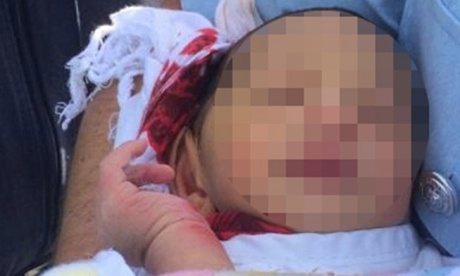As crimes go, abandoning a newborn in a drain is awful. Cases like this are exceedingly rare, but our society’s neglect of mothers makes them possible

A woman has been charged with the attempted murder of her newborn son, whom police say she left for dead in a drain on Tuesday before he was found on Sunday by passersby. As crimes go, it’s horrific. Babies are fragile, dependent on the care of others for their every need. No matter how bad things get, we are still shocked when someone callously disregards a newborn’s safety.
There’s a temptation to dismiss this crime as a rarity. But crimes don’t happen in isolation. Australia routinely fails to provide critical psychiatric and prenatal care for new mothers. The fate of this newborn boy has a place within Australian society, with blame we must shoulder.
Firstly, we shuffle pregnant mothers through the clinics and offices of dozens of doctors and nurses. Leah Hardiman, president of Maternity Choices Australia, told me that pregnant women see up to 25 different caregivers across one pregnancy. This model of care treats the general milestones of pregnancy while completely ignoring the patient, making their needs almost invisible to the health system.
This creates a system where care becomes a zoetrope, with many doctors often seeing a woman only once in her pregnancy. Continual care from one dedicated doctor or healthcare professional would greatly improve the likelihood of warning signs being detected: mental illness, family violence, substance abuse or other issues. Instead, cracks are allowed to deepen, often with devastating consequences for the family.
Approximately 40,000 women each year suffer from postnatal depression. One in 500 new mothers will suffer from postnatal psychosis – a psychiatric emergency that places themselves and their babies at harm. Yet, even in that moment of emergency, mothers are failed again.
The best treatment for postnatal psychosis is for the mother and child to be immediately hospitalised. They should be kept together, so as to forge a bond between the two. Yet in NSW, home to the abandoned baby and the mother now charged with his attempted murder, there are no mother-and-child beds available for psychiatric care.
Back in 2008, the then-minister for health, Nicola Roxon, initiated the national maternity services plan to improve conditions for new mothers. It focussed on continuity of care for pregnant women, improving conditions for Aboriginal and Torres Strait Islanders and services for postnatal depression and psychosis. A roadmap was agreed upon and signed by Australian premiers four years ago. The plan is still not active and few states will give funding.
Victoria and South Australia have beds that subject mothers to such long waiting periods that they are essentially out of reach for women. Western Australia has an entire mental health unit for mothers, but many other Australians won’t be able to access health care at all unless they fund it themselves.
We don’t yet know why the mother abandoned her child in Quakers Hill. But we do know that cases of outright abandonment like this are exceedingly rare. We also know that without services, without a commitment to fund treatment that will help families and end the stigmatisation of postnatal depression and psychosis, we are failing women and their children.
Hardiman said that “suicide is the leading cause of death for mothers in the first year of their baby’s life … more women die from suicide than they do from childbirth”. This is the society that makes a crime like abandoning a newborn abandoned for six days in a drain possible.
Rare as crimes like these may be, it is a crime that exists within a system ill-equipped or indifferent to the mothers who suffer – and may even tragically offend.
If you are experiencing difficulties, please call the child protection helpline on 13 21 11. The line is open 24 hours a day, 7 days a week.
